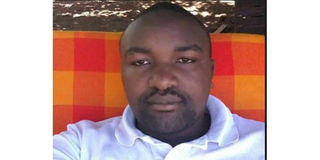Correct the imbalance between prosecution and enforcement

Photo: Thomas Kipruto
Q: Police have been accused of extrajudicial killings. What does it say about society that police prefer to kill rather than arrest?
A: We have six criminal law enforcement models, but the two foremost are the due process model and crime control model.
“Due process” assumes the suspect is innocent unless proven guilty. The police and the state are forced to follow procedure in obtaining all the evidence necessary for prospective successful prosecution and eventual sentencing, and it emphasises that it is better to release a criminal for lack of evidence than to jail
innocent person.
Due to the imbalance of power between the judicial system and the police system, the criminal will have his day in court and probably get released after employing a good lawyer.
The “crime control model”, on the other hand, assumes the police have the professional knowledge and capacity to investigate crimes and prosecute. Therefore when they suspect a person to be a criminal, there is a high chance that the person is indeed a criminal. The burden of proof on the side of the police is lower than the due process model.
Due to the imbalance of power between the judicial system and the police system, the criminal will have his day in court and probably get released after employing a good lawyer. The police are criticised for shoddy investigations, tampering with evidence, insufficient evidence and so forth.
The next time the police officer meets the suspect in the field involved in crime, he will not bother to arrest him or her, and go through the same judicial system again. He knows for sure that the lawyer will poke holes on his evidence, and the case will collapse as earlier, so the decision to pull the trigger will take
precedence over the arrest.
Q: What does it take to be a police officer?
A: To understand the police officer, we need to look at the recruitment process. Traditionally, in this country, policing is not an attractive career. Physical requirements are emphasised rather than psychometric tests, and the best grades are not looked into.
William Sheldon, a psychologist classified people according to three body types; endomorphs are rounded and soft; mesomorphs, who are square and muscular, and ectomorphs who are thin and fine-boned.
The training they get enhances the mesomorphic features of the recruits; recruits are recruited from the tough and trained to be tough. When you give this person the gun, he feels powerful and he knows exactly what the gun can do.
The current police to population ratio in Kenya is around 1:1026, which is way below the UN recommended ratio of 1:400, and the burden of policing over 40 million Kenyans fall on these shoulders “tough” soldiers. Kenya needs to more than double the police numbers, which according to the latest EconomicSurvey stood at 42,853.
Although not all officers are inclined to fire many bullets into a victim, you will find that one may decide to do so based on his emotions of the moment.
Q: Are police allowed to kill people who have surrendered? What would prompt a policeman to kill someone who has given himself up?
A: To surrender is a vague term. To the police officer the victim is as dangerous as he appears, even when he lifts up his hands as a ‘sign’ of surrender.
There is authentic and inauthentic surrender. If we knew for sure what the term surrender entails, we could be in a good position to judge with certainty.
Q: Why is policing different in affluent areas compared to poor areas?
A: In the poor neighbourhoods there is a huge population which is difficult to police due to infrastructure and other challenges.
Affluent areas are less policed since the people living there can take extra measures to secure themselves.
Q: With specific reference to the police, what needs to be done to make them better enforcers of the law?
A: The National Police is well trained. It is not a trigger happy institution per se. But the officers are emotional beings like all humans and some of them could be psychopathic.
Current issues such as terrorism wields emotion on the public. With reference to performance, the police will fight and protect its own. To improve the performance of this lot, criminal investigations needs to be boosted with better laboratories and other facilities as well as reforming the judiciary.
Without reforming the judiciary, balancing of power between criminal defenders (lawyers), and police officers the two law enforcement systems will remain in conflict.





